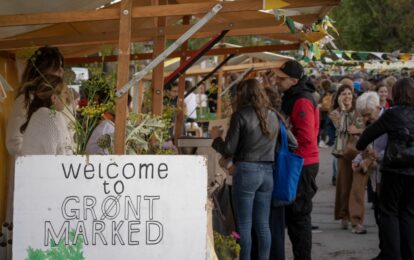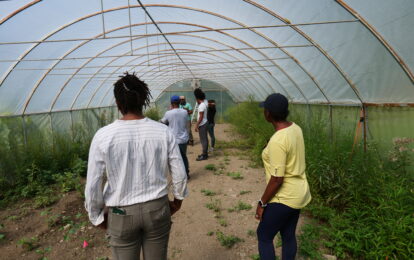ORFC 2026 8 – 9 Jan
ORFC 2026 8 – 9 Jan
Beneath tents and umbrellas around the world, farmers sell the fruits of their labour directly to consumers. However, upon closer inspection, it is evident that much more is going on. Market managers intentionally pursue creative policies to incentivize attendance by consumers who otherwise may not feel welcome: the elderly, children and mothers on public assistance. They also mitigate risks for farmers by preparing them for the rigours of commerce through training. When present, the skillset…

In this session, experts and activists promoting agroecology will share their experiences in advocating for public policies and initiatives that support these transitions from pesticide dependence to agroecology and initiatives that offer the opportunity to transform our food systems.
Indigenous food systems are the foundation of agroecology and yet are very much under threat by mining and other extractive industries, land-grabbing and an increasingly homogenised industrial food system. Indigenous food systems safeguard agrobiodiversity – which is essential for ecosystems and human communities alike. In this session,we will explore how Indigenous Peoples are organising to defend their territories and their food systems. What strategies are they using to preserve and strengthen their food systems, culture…
Shifting how we talk about food, how we think about food, and how we relate to food is directly tied to the fight to ensure future life on this planet. As Black, Indigenous, and diasporic people of color (BIPOC) food leaders have long argued, dominant food narratives perpetuate extractive and exploitative norms rooted in white supremacy culture - prioritising profit over collective wellbeing. Without intentionally addressing deep narratives to change the way we think about…

Black Farmer Fund (BFF) was created by Black farmers who were frustrated with the limited financing options available to them, with the hopes of creating a funding vehicle that would challenge the racial injustices and wealth inequalities faced by Black Food actors. BFF is by us, for us, with a community of 12 Black farmers and food systems entrepreneurs from across the state leading the fund’s governance and making decisions around which applicants receive funding.
…
When colonists arrived in Australia they ignored the First Peoples’ style of land management, which nurtured diversity, and chose instead to replicate the systems they had left behind - ploughing soil, planting exotic food plants, and almost completely ending the use of fire in the landscape. Bruce Pascoe is a Yuin, Bunurong and Tasmanian man, a writer and farmer who has been observing the recovery of his own and others' land in Australia since the…
Every species of sea vegetable, shellfish, and fish has its own story, culture, and set of policy issues. Each species, their environments, and the cultures that depend on them are at risk due to pollution, corporate extractivism, and the climate crisis. At the frontlines of those struggles are the Indigenous people who have carefully stewarded the waters around them and are continuing to do so today. Carl Wasillie, Yupik biologist based out of Washington and…
In this session, we hear from a speaker from an Indigenous community in Kerala who has witnessed firsthand a community revival of skills and knowledge in Indigenous and local food and farming practices over the last few years. Also from a group supporting the Lumads, an Indigenous people in Mindanao in the Philippines, who are reviving their cultural practices in food production and working to strengthen their knowledge base and build new practices with the…
The COP27 was very significant to Africa owing to the fact that it was held in Egypt on the African continent. Various climate actors including a number of African civil society organisations were present during the negotiations. Those that have an opportunity to access the blue zone of the COP27 had an opportunity to engage with climate negotiators from various governments. In this session, we hear from those who were present during the COP27 as…